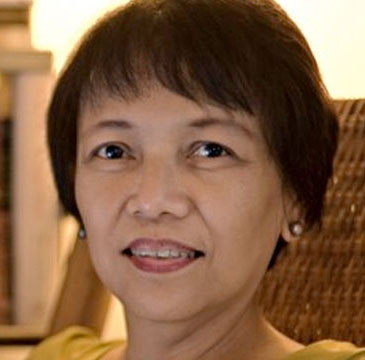SUMMARY
This is AI generated summarization, which may have errors. For context, always refer to the full article.
 What is most grating about Vicente Sotto III’s cut-and-paste mania is that he thinks he did nothing wrong. And so do others, including, for a time, Juan Ponce Enrile, who seemed to trivialize it, until he took a clear position in his recent privilege speech.
What is most grating about Vicente Sotto III’s cut-and-paste mania is that he thinks he did nothing wrong. And so do others, including, for a time, Juan Ponce Enrile, who seemed to trivialize it, until he took a clear position in his recent privilege speech.
“We are not condoning the act of plagiarism in the Senate,” the leader of the Senate declared. “If there is anyone of us wittingly or unwittingly who commits this act, that member would be man enough or honorable enough to stand up and answer for it.”
He continued: “No one is above the law. No one is beyond investigation here among us.”
Enrile’s response is most welcome. I hope this sets the tone for the upcoming work of the Senate ethics committee.
The Senate is well aware of a precedent set by the Supreme Court. This is the second time we’re seeing one of our key institutions—sometimes referred to as the second great branch of government—deal with a member who has flagrantly plagiarized and refused to apologize for it.
Not too far back, in 2010, a Supreme Court justice, Mariano del Castillo, lifted hefty parts of a decision on a case with international implications. Mariano was the justice in charge of the comfort women case. Around 70 women repeatedly raped by Japanese forces during the Second World War asked the Supreme Court to compel the Japanese government to make a public apology and to compensate them. They lost.
Blame it on Microsoft
The lawyers of the comfort women filed a complaint with the ethics committee of the Supreme Court. Authors of the plagiarized works, legal scholars from the US and Europe, wrote the Court and pointed out Del Castillo’s ethical breach.
After holding one hearing, which was held behind closed doors, the committee, composed of Del Castillo’s colleagues in the Court, said he did nothing wrong. They reduced the issue to a technical glitch and blamed the error on Bill Gates’s Microsoft Word program.
Majority in the Court adopted the committee’s findings. “Microsoft Word program does not have a function that raises an alarm when original materials are cut up or pruned,” the decision said, as if they were a group of technology buffs assessing a product. They said Del Castillo had no intent of copying; they exonerated him.
The other shocker was the Court’s declaration that the standards in the judiciary are different from those in the academe, implying that they in the third branch of government follow less exacting mores. The academe, they said, is expected to put a premium on “originality,” while the judges and justices, “by practice and tradition, usually lift passages from such precedents and writings, at times omitting, without malicious intent, attributions to the originators.”
What’s the rationale for this? It’s the “need to be precise and correct.”
How about integrity?
The Court, to protect itself, glossed over something that lies at the heart of our humanity: the values of honesty and integrity. Plagiarism is stealing. It’s theft. I don’t see any other way of looking at it.
If the Supreme Court justices, our final arbiters who are supposed to be morally ascendant, say otherwise, what signal does this send to the rest of society, especially the students?
Fortunately, many of our universities and schools protested the decision. It was a pained cry from professors and teachers who try to shape values amid negative influences from various sources—this time to include the highest court in the land! This could have been a completely sad and devastating episode in our contemporary history were it not for these contrary voices.
The Coordinating Council of Private Educational Associations expressed alarm: “Plagiarism is intellectual dishonesty, thievery of intellectual property…How can we now discipline our students who copy the works and writings of other authors without attribution when they can simply take refuge behind the Supreme Court ruling?”
Fundamental issue
What was remarkable was that the Loyola Schools of the Ateneo de Manila University spoke up despite the glaring silence of the Ateneo Law School, where Del Castillo studied. The Loyola Schools restated their longstanding position: “Academic honesty…is a question of personal discipline and moral character. The school’s resolve on the stringent requirements of proper acknowledgement of sources goes to the heart of its mission in forming persons for others—persons who value truth, respect, gratitude, integrity, and Justice.”
Sotto, for his part, is trying to wiggle out of this tight spot by invoking parliamentary immunity. This does not apply to the Senate ethics committee which has the duty to look into complaints filed against its members.
The more fundamental issue is: Sotto is not immune from ethics. He has to live by a universal code of conduct that requires keeping faith with values that never go out of style. – Rappler.com
Add a comment
How does this make you feel?
There are no comments yet. Add your comment to start the conversation.